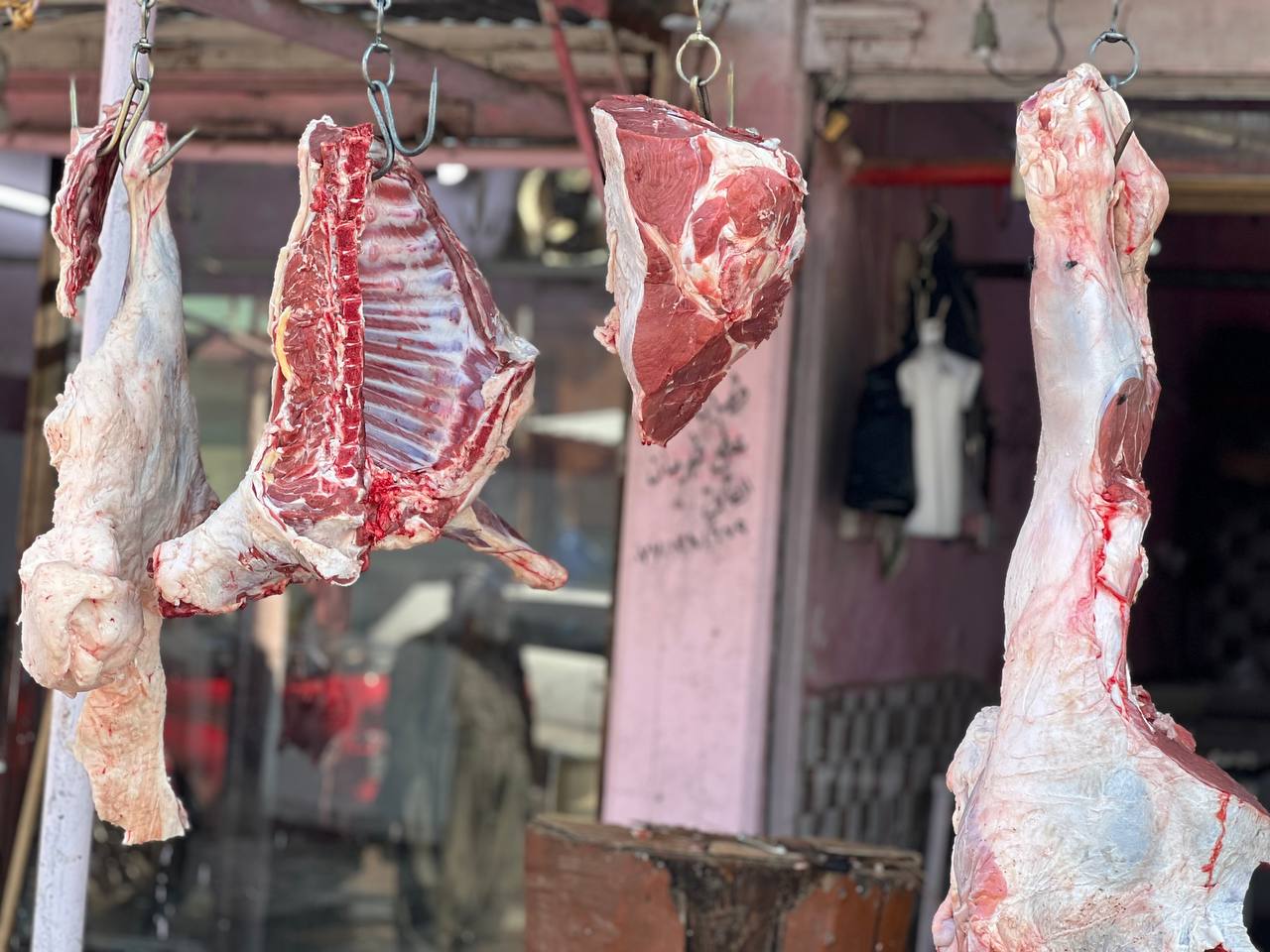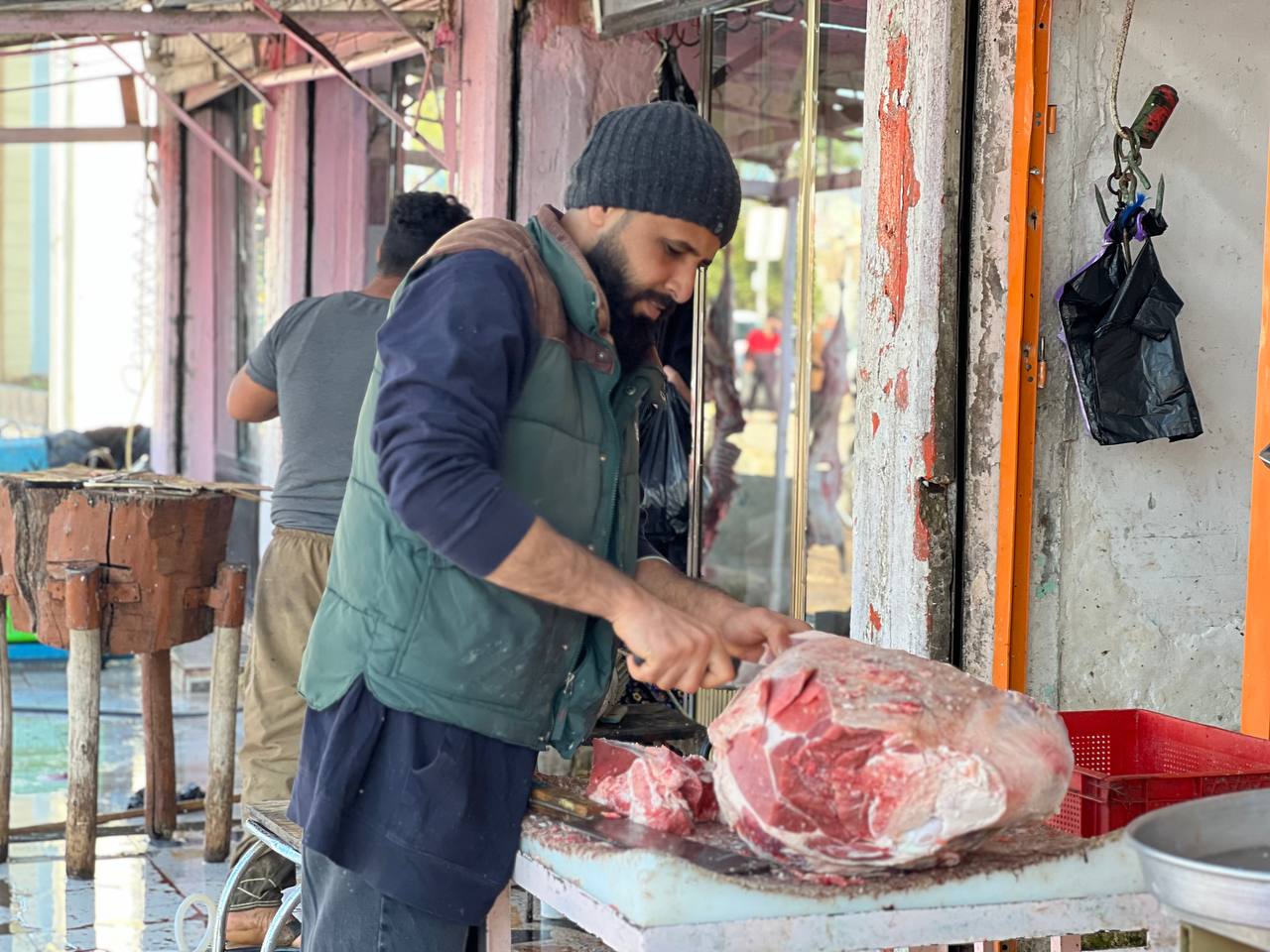The government and merchants attribute the rise in red meat prices to six reasons after the price of one kilogram KG of meat in Kirkuk reached 23,000 Iraqi Dinars IQD and hit 25,000 IQD in Sulaymaniyah Northern Province.
The rise in the price of beef and sheep meat began last week, while the government took urgent measures to reduce it.
Ahmed Hijran, a meat seller in Daquq district, south of Kirkuk province, said, “The price of one kilogram has reached 23,000 Dinars for me. If I do not sell it for this price, I will lose. I wish we had bought livestock at lower prices, then we would be able to reduce the price.”
“Livestock prices are high, local production has declined, and villagers have given up raising livestock and moved to the cities,” according to Ahmed.
Jawad Muhammad, the official of the Livestock Division in the Daquq Agriculture Department, mentioned the same reason that Ahmed pointed out and said, “The main reason is the small number of heads of local livestock, and other reasons include the chaos in the market, as everyone sells at the price he wants.”
According to statistics from the Daquq Department of Agriculture, the number of sheep in Daquq 10 years ago was 80,000 heads while the latest statistics indicate that their number has declined to 40,000 sheep, and the number of goats has decreased from 13,000 heads to only 2,000.
Jawad explained that this statistic applies to most other Iraqi governorates.
The oil-rich city of Kirkuk is an ethnically mixed province for 1.7 million Kurds, Sunni and Shiite Arabs, and Turkmens. It has long been at the center of disputed territories between Baghdad and Erbil. Kirkuk, located 238 kilometers north of Baghdad, has vast agricultural lands and consists of four districts.
The rise in meat prices coincides with the approaching spring season when citizens go on trips and the demand for red meat increases. It also coincides with the approaching month of Ramadan - the second week of March - which further doubles the demand for meat.

A meat shop in Kirkuk, February 19, 2024. Muhammad Almass
The Veterinary Department of the Iraqi Ministry of Agriculture, in a statement, on Monday, February 19, identified several reasons that led to the rise in the price of red meat in the markets, most notably the increase in demand versus supply.
The statement indicated that other reasons include "merchants' greed on the one hand, as well as high feed prices on the other hand."
The ministry's statement also stated that the prices of imported meat rose due to the turmoil in the global situation, especially after October 7, which led to a reduction in the import of animals.
The Iraqi Ministry of Agriculture plans to import “large numbers” of calves as soon as possible for slaughter and to reduce the price of meat in the coming period. The statement affirmed that “the Ministry agreed to import more calves.”
The Ministry called on "merchants and investors to be considerate of citizens regarding prices, especially as we approach the month of Ramadan."
Beston Muhammad, a resident of Kirkuk, says, “I buy meat throughout the month of Ramadan. I often buy one full sheep, but in this situation, I will not be able to do so this year because the prices are almost double what they were last year.”
A follow-up by KirkukNow in May 2022, found out that several factors contributed to the rise of meat, including the drought due to the poor rainfall, the ban on importing meat, and the increased demand for it during the month of Ramadan.
As for Najah Ahmed, a meat seller in Kirkuk, he said, “We are in favor of lowering prices because our customers have significantly dropped.”





